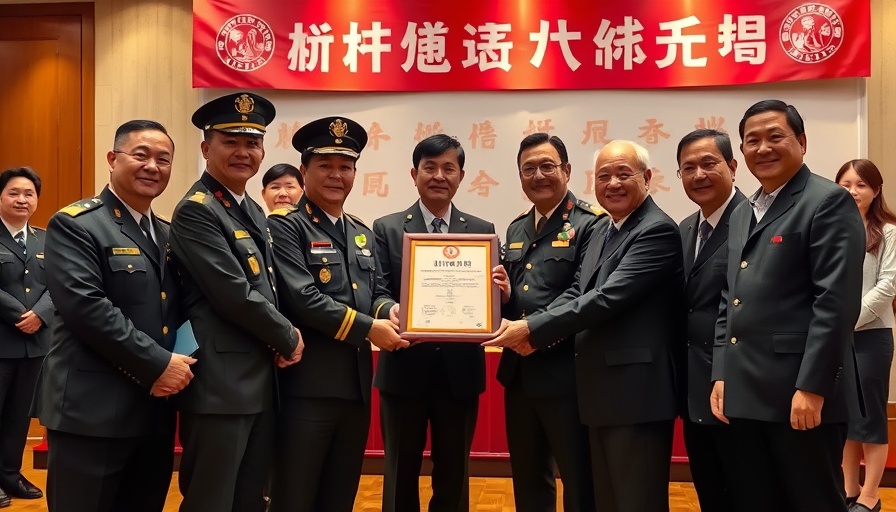
Controversy at the Heart of Ontario's Elections
The upcoming federal elections in Ontario are drawing heightened attention, particularly in the Greater Toronto Area (GTA). The Liberal Party's nomination of Peter Yuen in the Markham-Unionville riding has ignited fresh concerns regarding his connections to the Chinese consulate in Toronto. This situation comes on the heels of the party's previous candidate stepping down over inflammatory remarks related to a Conservative opponent's alleged connections with Chinese authorities.
Relations with the Chinese Consulate
Yuen's past actions are bringing his candidacy under scrutiny. Notably, his attendance at an event commemorating the 67th anniversary of the People’s Republic of China raised eyebrows, especially as he appears to salute the Chinese flag while in his police uniform. This incident was documented on the Toronto Consulate's website, which seeks to portray friendly relations with local authorities.
The optics of such gestures are critical in a climate where relations between Canada and China are strained amidst rising geopolitical tensions. These events tie into larger conversations about national security, sovereignty, and the integrity of candidates vying for public office. Voters must grapple with the implications of foreign relations influencing domestic politics.
Public Sentiment and Response
The reaction from the electorate is steeped in skepticism. Many community members are voicing their discontent, drawing attention to the need for politicians to prioritize Canadian values over foreign affiliations. The concerns reflect a broader trend of emergent caution regarding liberal democratic processes being influenced by authoritarian regimes.
One concerned voter stated, "If he cannot even remain neutral during a ceremony honoring a foreign government, how can we trust him to represent our interests in Ottawa?" This sentiment highlights a growing awareness among voters about the interconnectedness of global politics and local governance.
The Bigger Picture: China-Canada Relations
To understand the current controversy, it's essential to look at the historical context of Canada-China relations. Recent years have seen a dip in diplomatic ties, particularly following the Huawei incident and subsequent retaliatory measures taken by both nations. Such issues have raised national concerns about espionage and influence operations.
Analysts suggest that candidates linked to regimes with questionable human rights records can hinder the trust necessary for effective governance. Voters are increasingly wary of candidates who may exhibit loyalty to foreign entities—potentially jeopardizing their country's interests.
The Implications for the Liberal Party
The implications of this nomination for the Liberal Party are significant. Political analysts believe that any breaches of trust with constituents could result in a shift in voter sentiment, particularly as the election approaches. Even with a solid history in Ontario's political landscape, such controversies can infringe upon the party's credibility.
With elections on the horizon, party leaders are in a crucial position to respond to this controversy effectively. For the Liberals, it's not just about retaining a seat in Markham-Unionville; it’s about demonstrating a commitment to Canadian values and transparency in governance.
Coping with Local and Global Challenges
As regional candidates face scrutiny for their affiliations, they must be prepared to address concerns directly with their constituents. Engaging voters in meaningful dialogues about security and foreign relations will be paramount. Trust can only be built through transparent communication and actionable policies—something that’s essential in today's politically charged environment.
What Lies Ahead
Looking forward, the outcome of this election may serve as a barometer for Canadian attitudes towards foreign interference. It gives the electorate an opportunity to express their values and redefine what they expect from their representatives.
As voters prepare for what promises to be a contentious election season, the choice they ultimately make could shape the future of Canadian politics and its stance on international relations.
 Add Row
Add Row  Add
Add 




 Add Row
Add Row  Add
Add 

Write A Comment